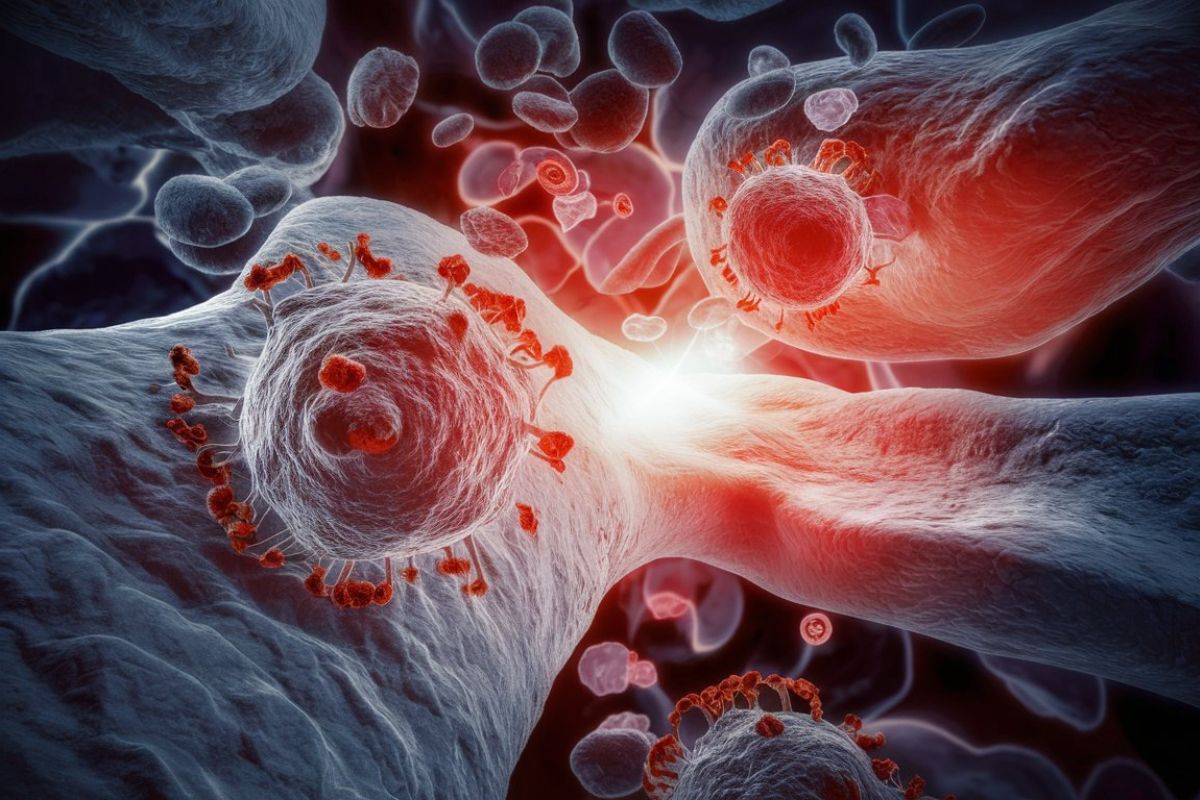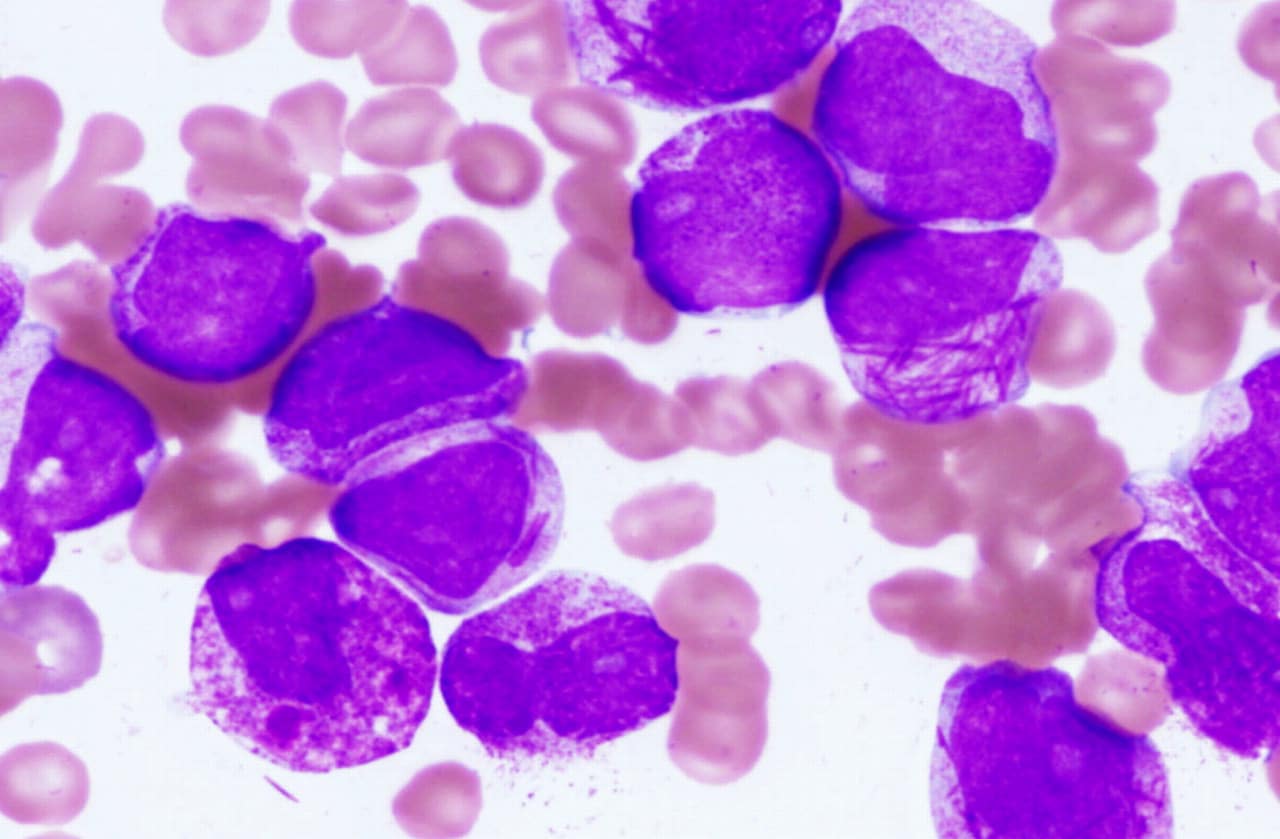
Acute Megakaryoblastic Leukemia (AMKL) is a rare type of blood cancer. It primarily affects young children but can also occur in adults. AMKL arises from megakaryoblasts, which are immature cells that normally develop into platelets. These abnormal cells multiply rapidly, crowding out healthy cells in the bone marrow. Symptoms often include fatigue, easy bruising, and frequent infections. Diagnosis typically involves blood tests, bone marrow biopsy, and genetic studies. Treatment options range from chemotherapy to bone marrow transplants. Understanding AMKL can help in recognizing early signs and seeking timely medical intervention. Here are 20 essential facts about this challenging condition.
What is Acute Megakaryoblastic Leukemia?
Acute Megakaryoblastic Leukemia (AMKL) is a rare and aggressive form of leukemia. It primarily affects the bone marrow and blood, leading to the overproduction of immature megakaryoblasts. These cells interfere with normal blood cell production.
-
AMKL is a subtype of Acute Myeloid Leukemia (AML). This means it originates from the same type of stem cells in the bone marrow but specifically affects megakaryocytes, the cells responsible for producing platelets.
-
It is more common in children than adults. While AMKL can occur at any age, it is most frequently diagnosed in young children, particularly those under the age of three.
-
Associated with Down syndrome. Children with Down syndrome have a higher risk of developing AMKL, especially within the first few years of life.
Symptoms of Acute Megakaryoblastic Leukemia
Recognizing the symptoms of AMKL early can be challenging due to their similarity to other illnesses. Here are some common signs to watch for.
-
Fatigue and weakness. Due to a lack of healthy red blood cells, individuals with AMKL often feel unusually tired and weak.
-
Frequent infections. A shortage of white blood cells makes it harder for the body to fight off infections, leading to frequent illnesses.
-
Easy bruising and bleeding. Low platelet counts result in easy bruising, frequent nosebleeds, and bleeding gums.
-
Bone and joint pain. The overproduction of abnormal cells can cause pain in bones and joints.
Diagnosis of Acute Megakaryoblastic Leukemia
Diagnosing AMKL involves several tests and procedures to confirm the presence of leukemia cells in the bone marrow and blood.
-
Blood tests. Complete blood count (CBC) tests can reveal abnormal levels of white blood cells, red blood cells, and platelets.
-
Bone marrow biopsy. A sample of bone marrow is examined under a microscope to identify the presence of megakaryoblasts.
-
Cytogenetic analysis. This test looks for specific genetic abnormalities in the leukemia cells, which can help in diagnosing AMKL.
Treatment Options for Acute Megakaryoblastic Leukemia
Treatment for AMKL typically involves a combination of therapies aimed at eliminating leukemia cells and restoring normal blood cell production.
-
Chemotherapy. High-dose chemotherapy is the primary treatment for AMKL, aiming to kill leukemia cells in the bone marrow and blood.
-
Stem cell transplant. In some cases, a stem cell transplant may be necessary to replace damaged bone marrow with healthy cells.
-
Targeted therapy. Newer treatments target specific genetic mutations in leukemia cells, offering a more personalized approach to treatment.
Prognosis and Survival Rates
The prognosis for AMKL varies depending on several factors, including age, overall health, and response to treatment.
-
Children with Down syndrome have a better prognosis. They tend to respond more favorably to treatment compared to other children with AMKL.
-
Early diagnosis improves outcomes. Early detection and prompt treatment can significantly improve survival rates.
-
Relapse is possible. Even after successful treatment, there is a risk of the leukemia returning, requiring further treatment.
Research and Advances in AMKL
Ongoing research is crucial for improving the understanding and treatment of AMKL. Scientists are continually exploring new therapies and approaches.
-
Genetic research. Studies on the genetic mutations associated with AMKL are helping to develop targeted therapies.
-
Immunotherapy. This emerging treatment uses the body's immune system to fight leukemia cells, showing promise in clinical trials.
-
Clinical trials. Participation in clinical trials offers patients access to cutting-edge treatments and contributes to medical research.
-
Supportive care. Advances in supportive care, including better management of side effects, are improving the quality of life for patients with AMKL.
Final Thoughts on Acute Megakaryoblastic Leukemia
Acute Megakaryoblastic Leukemia (AMKL) is a rare but serious type of leukemia. It primarily affects young children and those with Down syndrome. Understanding its symptoms, such as fatigue, easy bruising, and frequent infections, can lead to early diagnosis and better treatment outcomes. Treatment often involves chemotherapy, and in some cases, stem cell transplants. Research continues to improve survival rates and develop targeted therapies. Awareness and education about AMKL are crucial for early detection and support for affected families. By staying informed, we can contribute to better outcomes and support ongoing research efforts. Remember, knowledge is power when it comes to battling rare diseases like AMKL. Stay vigilant, support research, and spread awareness.
Was this page helpful?
Our commitment to delivering trustworthy and engaging content is at the heart of what we do. Each fact on our site is contributed by real users like you, bringing a wealth of diverse insights and information. To ensure the highest standards of accuracy and reliability, our dedicated editors meticulously review each submission. This process guarantees that the facts we share are not only fascinating but also credible. Trust in our commitment to quality and authenticity as you explore and learn with us.


